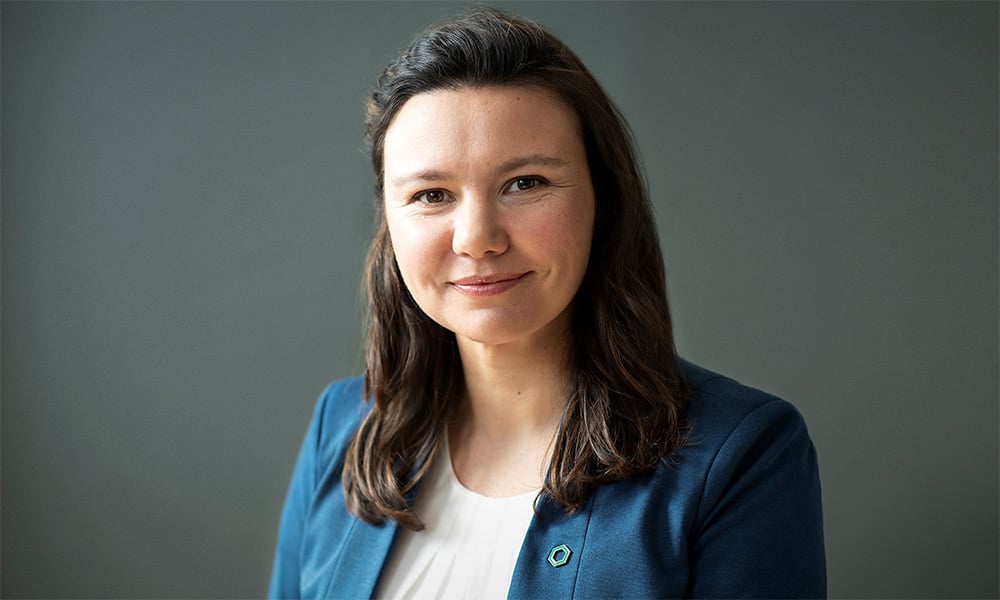ESG expert explains why Sustainable Development Goals can give advisors a framework for purpose and profit

The ethos of ESG investing can impact all businesses, from the smallest start-up to industry behemoths.
Deborah Debas, a responsible investment specialist at Desjardins, knows both sides of the coin. Well versed in analysing the space and ESG strategies, Debas was also an entrepreneurial small business owner in Ecuador, where she co-founded and ran a small microbrewery. Most of its waste was organic and leftover grains were traded with farmer neighbours for eggs. She said: “You can always start with something and eventually scale it up!”
Debas will take part in a Q&A at the upcoming WP Advisor Connect ESG event on October 20 in a session titled The UN Sustainable Development Goals: A Framework to Align Purpose and Profit. To see the full agenda click here and to register go to the homepage and follow the instructions.
The UN targets are 17 goals adopted by 217 countries in 2015 – and they are monumental. They tackle the end of poverty, hunger, water and sanitation for everyone, responsible resource use and education quality. The ambitious plan is to have the whole world meet those objectives by 2030. “Pretty much the day after tomorrow,” Debas said.
The UN believes it will take about $7,000 billion a year to meet these goals. Governments and philanthropic contributions alone are not enough, so there is a sustained effort to align private capital, enabling companies trading on the stock market to align their mission towards meeting the UN’s goals.
Debas believes that, as an investor, if you are able to find those companies who can identify issues they're able to solve in a responsible, sustainable and profitable way, then you're investing in companies of the future.
She said “When you're able to find companies who are extremely well managed, that have a distinctive advantage because they’re solving a problem, then financially you're in for a good ride because this company will keep producing value and keep growing.
“That’s good because it helps your portfolio as an investor and it allows the company to actually broaden their impact. So, as they make a profit, they grow, reinvest in the company and are able to broaden the positive impact.”
The alignment of purpose and profit is an age-old argument that Debas believes is being confined more and more to the minority. After the COVID-19 downturn and as we transition to this low carbon and more sustainable economy, it’s clear that investors no longer have to choose between the planet, people or profits – none of these are mutually exclusive.
“[The pandemic] has certainly increased interest in ESG,” she said. “It has increased momentum and questions. And it has also proven the mettle behind the idea that integrating environmental, social and governance aspects to our investment decision-making process is a good way to manage risk and to seize opportunities. We have seen investment funds, who integrate ESG aspects, outperform their peers.”
Debas recommended that advisors look into the strategies that are applied within a portfolio or by the portfolio manager. You can have exclusion screening, best in class, and actual ESG integration in the financial analysis, where she believes the bulk of the work is done.
She added that advisors, in her experience, are becoming more enthusiastic about ESG themes and that the positive returns column is definitely helping, especially when clients come to you with other needs on top of actually making money.
“When you know that you're already meeting part of your financial objectives because the risk-return profile of your products is basically the same as to what you're used to or even better, then it's easier to actually get talking on the other side of the product, which is the impact and investing according to your client’s priorities. It’s easier now to get interest from advisors for ESG strategies because the return is there.”
On the flip side, there remains misconceptions around returns and the diversification or the composition of the funds. Some believe these funds are narrowly focused, which might be the case for thematic impact investments, but responsible investing is a lot broader than that, according to Debas.
“You have core funds or Canadian equity funds that will resemble the Canadian economy, then you’ll have a lot of financials, you'll have a bit of resources, industrials, telecommunications, and so on.
“You might know financial companies and telecom are not directly working on a solution to an environmental or social issue. However, by investing in all these sectors, we're actually able to have an influence and signal the market as to the type of positive impact we're looking for and this is driving the whole market, so it's improving their ESG practices.”
For full details on the WP Advisor Connect ESG event on October 20, click here.
To learn more about Desjardins RI Solutions, visit www.desjardinsfunds.com/ri



